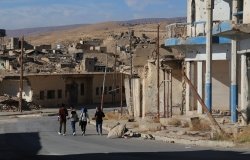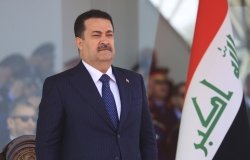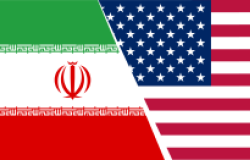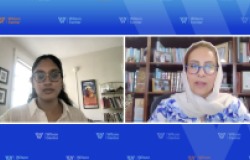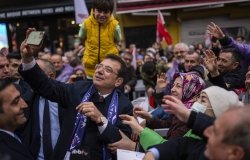The Democratic Transition in Tunisia
Radwan Masmoudi, President of Center for the Study of Islam and Democracy (CSID), discusses Tunisia’s democratic transition and perspectives for building a national consensus over the new constitution.
Overview
Radwan Masmoudi, President of Center for the Study of Islam and Democracy (CSID), discussed Tunisia’s democratic transition and perspectives for building a national consensus over the new constitution.
On March 14, the Middle East Program at the Woodrow Wilson Center and CSID hosted a meeting, “The Democratic Transition in Tunisia: Will there be a Consensus around the New Constitution?” Haleh Esfandiari, Director of the Middle East Program at the Wilson Center, moderated the event.
Masmoudi began his presentation by stressing how important this period is to building a lasting democracy in Tunisia as this “historic moment will affect the future of the region for decades, if not centuries,” and how “vital” the success of a true democratic transition is, not only for Tunisia, but also for the other Arab countries. He argued that even though all democratic processes are often long and difficult, Tunisia’s democratic transition “should be less painful in the Arab world” due to its high education levels, strong women’s rights and participation, homogeneous population, modern infrastructures, history of moderate Islam, and record of reformism and constitutionalism. He then recalled that Ennahda, the ruling party, has stood for democracy since its establishment in 1981 and cited its president, Rachid Ghannouchi, saying that “secularity and Islam are compatible.”
Regarding the current process of drafting the new constitution, Masmoudi emphasized the priority of building a consensus by bringing together representatives of all parties and NGOs. In spite of the long process, he believed that the Constituent Assembly working on the constitution was about to finish a third - and maybe definitive - draft of the constitution. He mentioned that the Assembly’s six committees have been holding many public meetings aiming at building a “real dialogue” because the “constitution is something people have to believe in.” The goal, he said, is to have “at least two-thirds of the general Assembly approving the constitution, if not 70 or 80 percent.”
Masmoudi then pointed out that the future type of regime - whether presidential or parliamentarian – and the extent of the president and parliament’s powers are the only issues the Assembly members are currently divided over. However, he affirmed that he was “very optimistic” with this third draft of the constitution because we are “very close to consensus” and that the Assembly writers seemed to be leaning toward a semi-presidential regime. He outlined CSID’s activities for Assembly members and Tunisian and international civil society organizations to debate over women’s and minorities’ rights, freedom of expression, and the independence of the state bodies monitoring the media, the judiciary, and the elections. Masmoudi did, however, criticized the negativity of the public media toward the ruling Ennahda party, saying that people are “fed up” and suggesting that the media need to be “controlled.”
Masmoudi ended by noting three challenges he sees Tunisia facing in the post-revolutionary period: a significant portion of the population does not believe in democracy, and some are even trying to derail it; continued economic instability and unemployment; and the security situation surrounding Tunisia in Libya, Algeria, and Mali. In conclusion, he said that Tunisia needed the support of the United States in its transition toward democracy and that this, at the same time, constituted “a unique opportunity for the United States to rebuild its credibility in the Arab world.”
By Valérie Guillamo, Middle East Program
Hosted By

Middle East Program
The Wilson Center’s Middle East Program serves as a crucial resource for the policymaking community and beyond, providing analyses and research that helps inform US foreign policymaking, stimulates public debate, and expands knowledge about issues in the wider Middle East and North Africa (MENA) region. Read more
Thank you for your interest in this event. Please send any feedback or questions to our Events staff.






